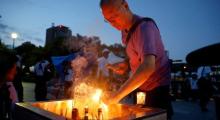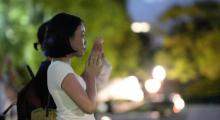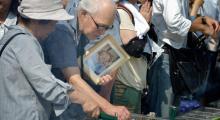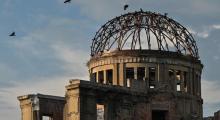Issued by the Catholic Center for Studies and Media - Jordan. Editor-in-chief Fr. Rif'at Bader - موقع أبونا abouna.org
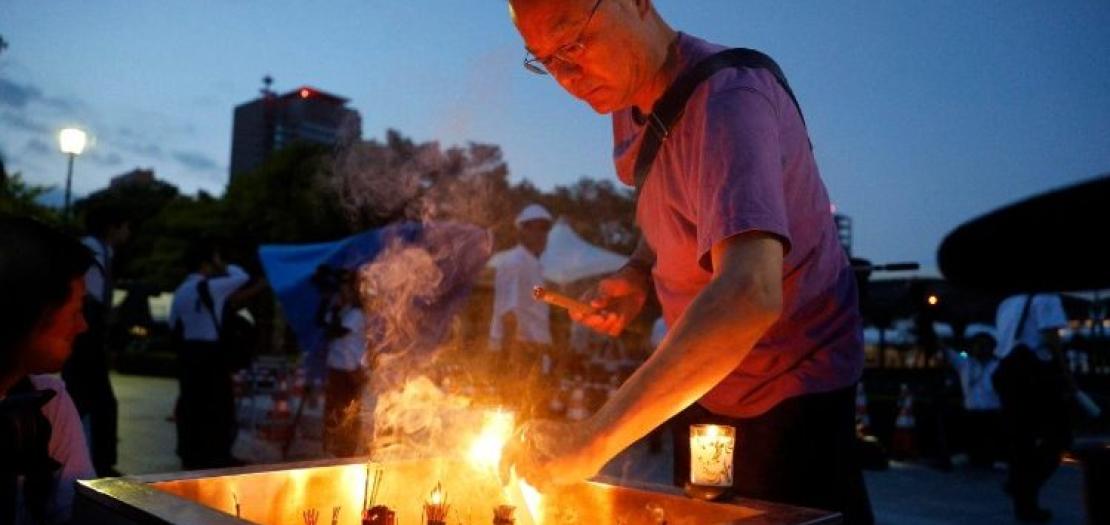
During his homily delivered as he celebrated Mass marking the nuclear bombing of the Japanese city of Nagasaki on 9 August 1945, Cardinal Blasé offered a reflection from the perspective of a Church leader but also of an American citizen assessing the U.S. decision to use atomic weapons in World War II.
The Archbishop of Chicago called the bombings “deeply flawed” due to the abandonment of core principles in international law and Catholic moral teaching, particularly the distinction between combatants and civilians.
“The traditional insistence on noncombatant immunity had crumbled during the savagery of World War II,” the cardinal said.
He referenced the firebombing of Japanese cities prior to the atomic attacks and criticised the normalisation of civilian targeting under the logic of “total war.” Hiroshima and Nagasaki, he noted, were chosen in part because other cities had already been destroyed, which would have reduced the psychological impact of the new weapon.
Cardinal Cupich pointed to the writings of American Jesuit John Ford, who as early as 1944 condemned “obliteration bombing” as morally unacceptable. Ford’s warning, the cardinal said, echoes today as the moral questions surrounding nuclear deterrence remain unresolved.
Shift in public opinion
While acknowledging that public opinion in the United States has shifted, with a majority of persons now disapproving of the World War II bombings, Cardinal Cupich expressed concern that many Americans still accept the idea of using nuclear weapons in modern conflict scenarios. He cited recent polling showing continued public support for nuclear strikes in hypothetical wars if such actions would save American military lives.
“This indicates that the U.S. public’s willingness to use nuclear weapons and deliberately kill foreign civilians has not changed as much since 1945 as many scholars have assumed,” he said.
The Archbishop of Chicago’s remarks also highlighted the need to reframe the Church’s just war tradition. He argued that it must be rooted in moral formation and solidarity rather than strategic calculation.
The cardinal also referred to the importance of integral disarmament, a term developed by the Vatican’s Dicastery for Promoting Integral Human Development, which he said calls for addressing the social, economic, and ecological foundations of peace.
The illusion of nuclear deterrence
In a critique of nuclear deterrence, Cardinal Cupich stated: “The use of threats… can never bring about the peaceful coexistence between nations that an ethic inspired by solidarity, authentic development, and human rights can produce.”
He warned against the illusion of peace created by mutual standoffs and cited recent geopolitical tensions involving Iran and North Korea as evidence of the ongoing danger posed by nuclear arms.
The responsibility of the United States
As the United States remains one of the world’s two nuclear superpowers, alongside Russia, the American cardinal said his country bears special responsibility.
“The U.S. must seek to build an international order that rests upon a non-nuclear foundation,” he urged, calling for renewed arms reduction efforts and a rejection of neo-isolationism.
Cupich concluded by honoring the Hibakusha - survivors of the atomic bombings - for their decades of advocacy for peace. Their voices, he said, must continue to inspire efforts to end the nuclear arms race.
“The human race must commit itself to the end of the nuclear arms race, for it is a race which none can truly win but countless millions can truly lose.”


